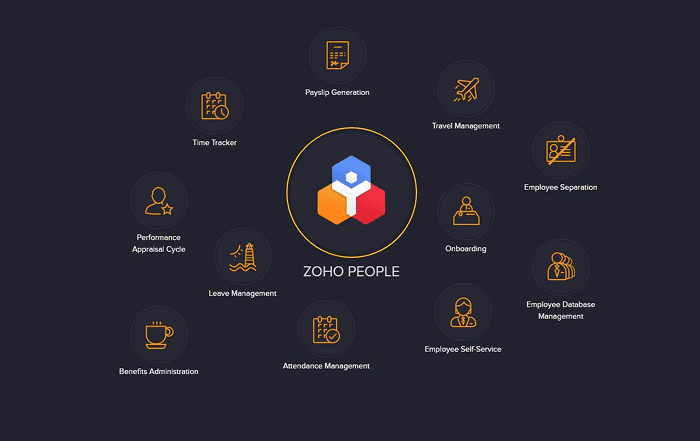
SEO requirements continue to change and keeping up with the latest developments can be difficult. However, if you want your Google leader board to move to the top of the invisible list, you need to know.
Well-optimized websites get more traffic over time and that means more leads and sales. Without SEO, search engines will not find your site up and all your hard work will be in vain.
In this guide, we answer the question “what does SEO mean” and share the important SEO ranking factors needed to control search results.
At the end of this post, you will have a well-optimized website that will bring you more business.
What is “Ranking” in SEO?
As you may know, SEO means search engine optimization, which simply means that websites rank more often in search engines. But let’s be honest: here, it just means Google.
What Does Google Look for in SEO?
Google’s goal is to “organize the world’s information and make it accessible and useful to everyone.” Submitting relevant search results is a big part of that. They work as follows:
Google’s crawlers (automated pieces of software called “spiders”) crawl the web. Sounds awful, we know. But all these means is that they visit websites. They add and catalog properly optimized and discoverable pages to Google’s index. When people search on Google, they show the most relevant results (from the trillions of pages in Google’s index) based on the search terms they enter.
Google has different and deeply complex algorithms for deciding what content to display and in what order. But we’ll talk about all the fun things later. However, if your page reaches the SERPs, you will need to rely on the titles and meta descriptions of your page for searchers to click on your link and visit your site.
Top 7 Most Important Factors That Affect SEO
- Site Security
As early as 2014, Google considered website security as a ranking factor. It is now one of the top Google ranking factors on this list. Site security refers to the use of HTTPS encryption. HTTPS encrypted sites have SSL certificates that create a secure connection between the site and its users. An additional layer of security is added that protects the information exchanged between users and the site.
Search engines want to direct users to the most trusted websites and the HTTPS encryption shows them that the website is safe. If your website URL starts with HTTP rather than HTTPS, then your website is insecure and you should add an SSL certificate.
- Crawlability
Search engines cannot rate a site if they cannot find it. This is why website crawlability is such an important SEO ranking factor. The crawlability allows search engines to crawl a website and view its content to determine what the page is about and how it should be ranked.
If you want Google to rank your site, let search engines crawl your site correctly.
- Submit your sitemap to the leading search engines.
- Check the index status in Google Search Console to see how many pages Google has crawled on your website.
- Use robots.txt correctly to tell which search engines to go to and which pages to ignore.
- Mobile-Friendliness
Mobile-friendliness refers to how a website looks and functions when someone views it on a mobile device. Mobile-optimized websites offer an easy-to-use experience with responsive themes that can be used to resize content to any screen size. With more searches performed on mobile devices than on desktops (52.2% of Internet traffic comes from mobile devices and that number is growing), the ease of use of mobile devices is important to both search engines and users.
- Page Load Speed
Another SEO ranking factor related to user experience is page load speed. Slow loading of websites is inconvenient for users. Search engines know that users want to find answers as quickly as possible. Hence, they prefer to display websites that load quickly to users. This is all the more true for mobile websites as Google announced that the speed update would make loading speed a ranking factor for mobile search.
- Content is the King
According to Andrei Lipattsev, Google’s senior search engine optimization strategy, content is one of Google’s most important factors. This should not be news – content has been an important ranking for some time – but in recent years we have seen a shift from keyword content to more appropriate natural language content.
The above-mentioned SearchMetrics study found that only 53% of the top 20 queries have keywords in the title tag, and less than 40% of the landing pages have keywords in H1. This number is declining year by year, which “clearly shows that Google values content by its importance – and not by adding individual keywords.”
So what exactly does “relevant” content look like? The short answer is: comprehensive.
- Backlinks
Links are still a major factor in Google’s rankings, but over the years, Google has learned to remove bad links. More links will still result in a higher score, but only if they come from several different and authoritative domains.
The key to a strong link building campaign is to create the content that people want, and then relentlessly advertise that content. Show gratitude to your visitors by thanking them with the integration of the WooCommerce thank you page on your Woo site.
When other industry authorities read and link to your content, Google will read the corresponding anchor text of your backlink and find your content more relevant. If your content wins many of these high-quality links, you’ll hit three important rankings: number of links, link authority, and link diversity. Also read On-Page Elements You Should Never Forget For Your SEO
Note that one of the main functions of a social signal is to earn you higher quality internet links.
- Domain Age
The final ranking may not be something you can check out, but it’s worth mentioning. The age of your domain or the age of your website is often considered a factor. Although Google does not clearly state this as a factor in its SEO ranking, research has shown that older domains tend to rank higher.
So when you open a whole new website, know that it will take time to launch your SEO efforts. Time and constant SEO work will improve the search results of your website, but it will not happen overnight.
Wrapping up: Best SEO Advice Ever
Create awesome content that your users will love. Then optimize this content with equal energy to help Google understand why your audience loves it so much. But always, no matter what, start thinking about your user end goal.







